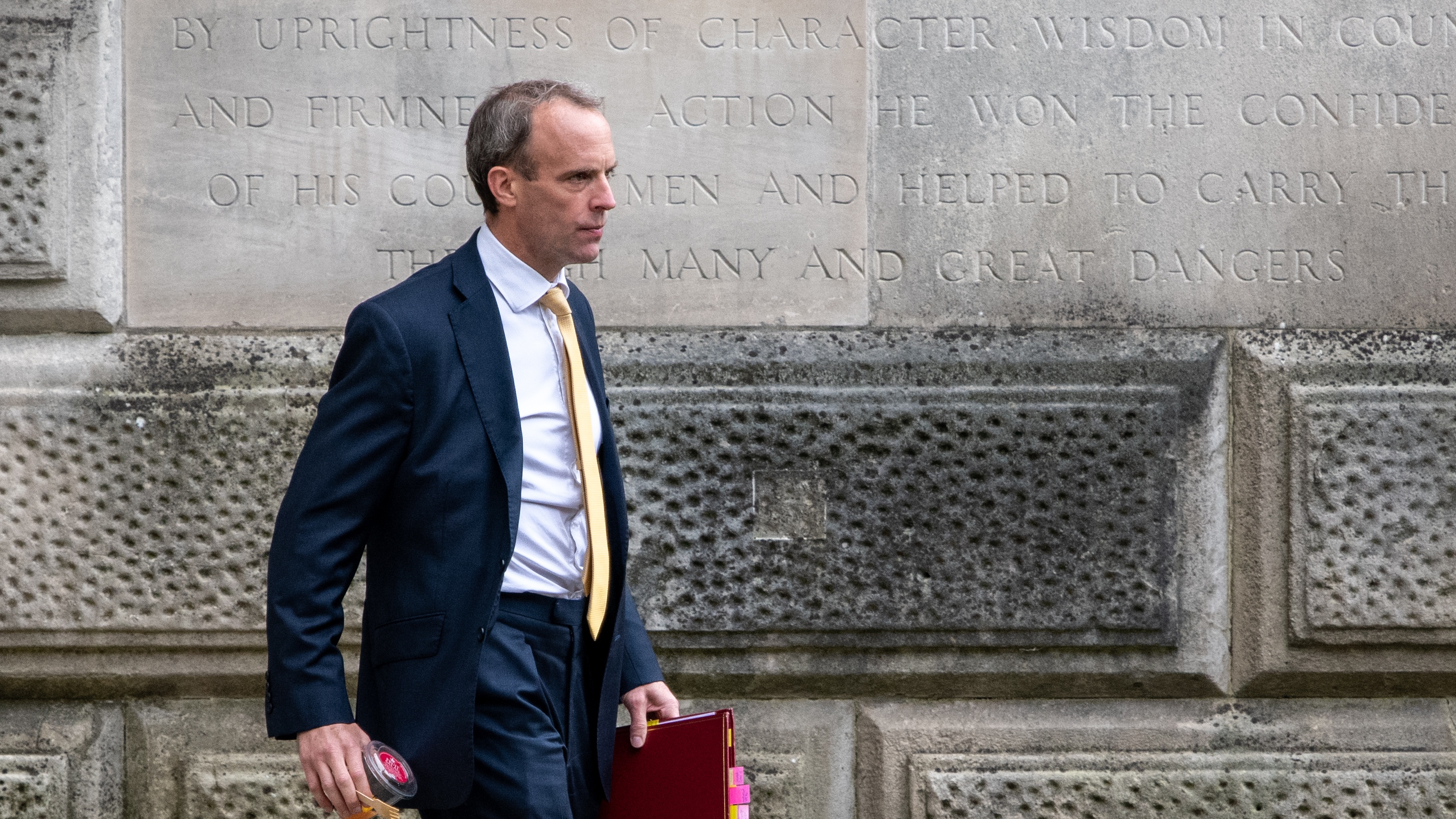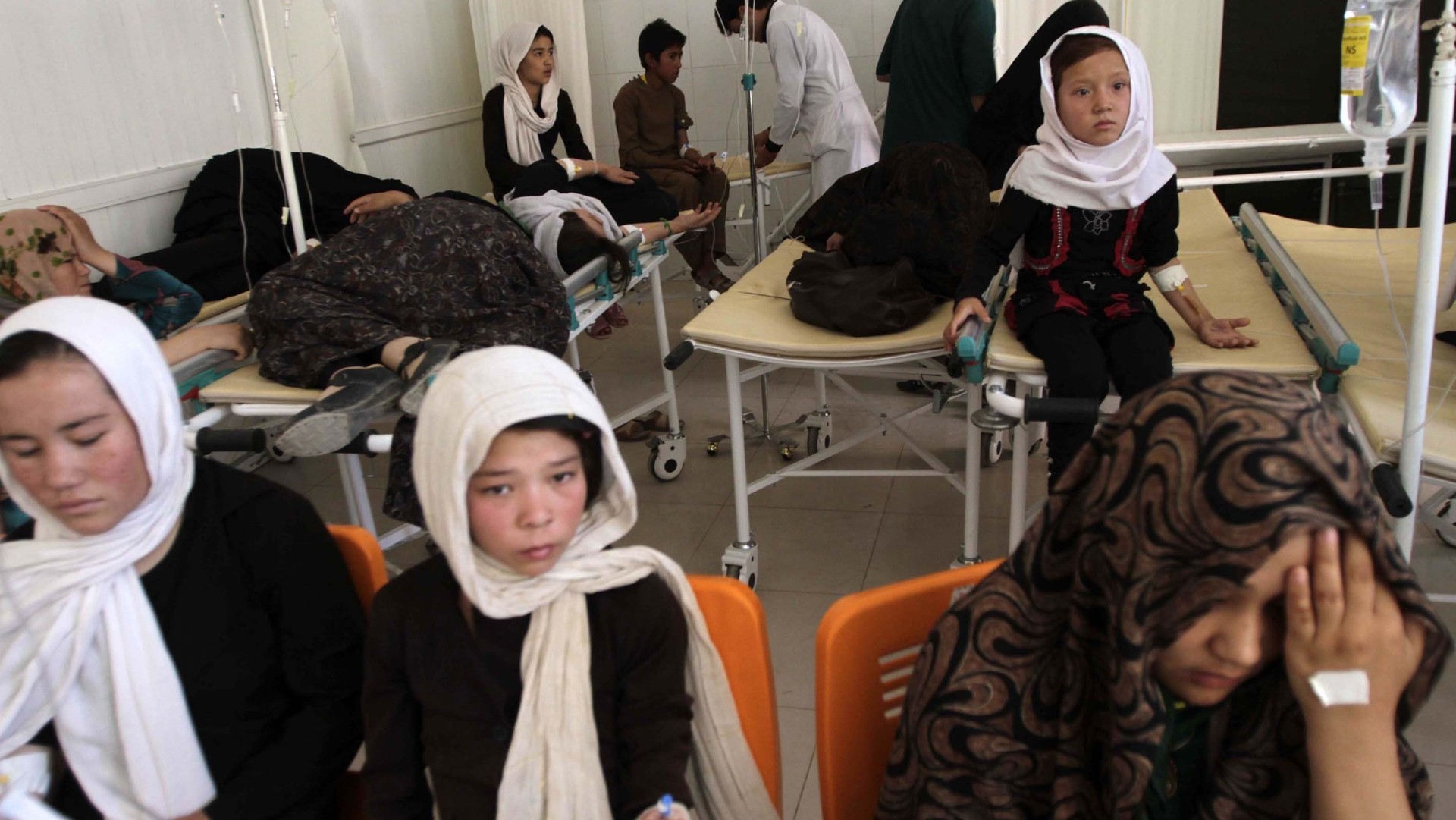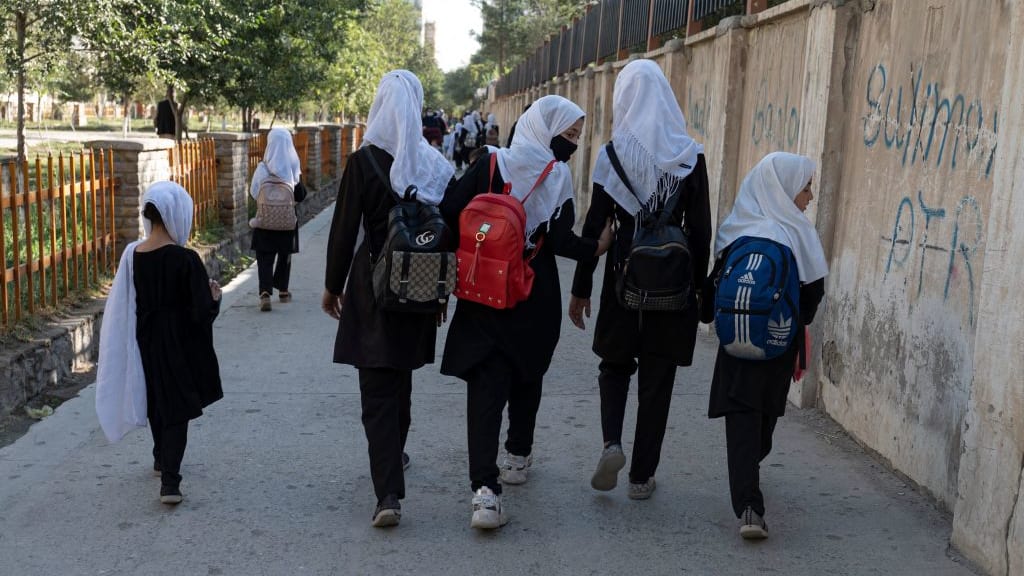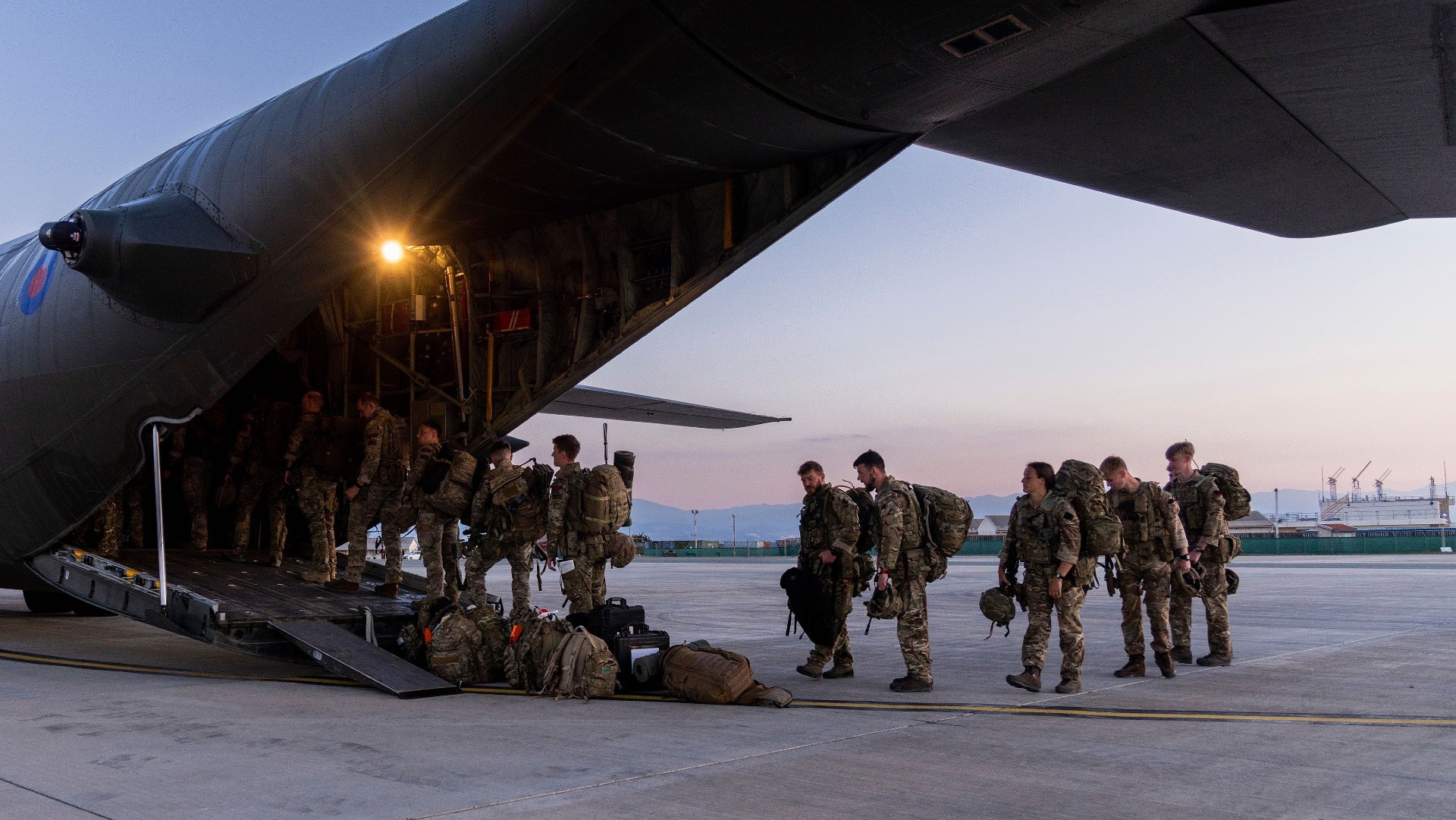‘After the humiliation of Afghanistan, we see the blame game in Whitehall’
Your digest of analysis and commentary from the British and international press

- 1. Crisis shows Foreign Office needs a reboot
- 2. The proposed social care plan is intergenerational robbery
- 3. Under the guise of tackling election fraud, the government is attacking democracy
- 4. Pakistan is relishing its role as kingmaker in Afghanistan
- 5. America is giving the world a disturbing new kind of war
A free daily email with the biggest news stories of the day – and the best features from TheWeek.com
You are now subscribed
Your newsletter sign-up was successful
1. Crisis shows Foreign Office needs a reboot
James Forsyth in The Times
on an outdated worldview
“After the humiliation of Afghanistan, we see the blame game in Whitehall,” said James Forsyth in The Times. “The foreign secretary says it was a failure of intelligence that the UK did not anticipate how quickly Kabul would fall”, while at the same time the “defence secretary replies: oh no it wasn’t. It is as if pantomime season has come early.” The Foreign Office has “long had its critics among Tory MPs”, The Spectator’s political editor continued, noting that “the old jibe that the Ministry of Agriculture looks after the interests of farmers and the Foreign Office looks after the interests of foreigners is never far away”. And while that charge is “obviously unfair”, “the withdrawal from Afghanistan has highlighted the limits of UK power”. Post-Brexit, Boris Johnson has said the department should have more influence, “in part by making Britain more globally minded”, Forsyth added. And “in a rapidly changing, post-Brexit world, the status quo is not sufficient to Britain’s needs and interests”.
The Week
Escape your echo chamber. Get the facts behind the news, plus analysis from multiple perspectives.

Sign up for The Week's Free Newsletters
From our morning news briefing to a weekly Good News Newsletter, get the best of The Week delivered directly to your inbox.
From our morning news briefing to a weekly Good News Newsletter, get the best of The Week delivered directly to your inbox.
2. The proposed social care plan is intergenerational robbery
Len Shackleton in The Telegraph
on private insurance
“The proposal to fund some social care and health expenditure from an increase in national insurance contributions is a bad idea,” according to Len Shackleton in The Telegraph. Arguing that “social care and health care should be within the same system, as they are in many European countries”, he continued that “that ship sailed decades ago and the government shows no sign of a fundamental rethink, which might also involve a greater role for insurance”. Encouraging private insurance, rather than tax-funded care, would avoid the cost of social care falling “disproportionately on younger and poorer workers, who start paying NICs [national insurance contributions] before they start paying income tax”. The young have “suffered enough during the recent pandemic and repeated lockdowns”, he said, explaining that it is “absurd that those over state pension age with substantial incomes and assets – the major beneficiaries of this proposal – should not pay part of the burden”. “Families with a lot of capital at risk from prolonged need for care should have the responsibility to insure rather than look to – often much poorer – taxpayers to support them,” he added. “The government should be much more radical rather than offering a fudge which will satisfy nobody.”
A free daily email with the biggest news stories of the day – and the best features from TheWeek.com
3. Under the guise of tackling election fraud, the government is attacking democracy
Angela Rayner in The Guardian
on voting reform
“Next week the government will try to reverse centuries of democratic progress in this country,” wrote Angela Rayer in The Guardian, adding that “the Conservatives’ elections bill – copied and pasted straight out of the Donald Trump playbook – is a blatant attempt to rig democracy in the favour of the Conservative party by suppressing votes, gagging organised opposition and neutering our independent electoral watchdog”. Noting that the government has argued “that its plans to bring in voter ID would combat voter fraud”, the Labour deputy leader continued that “the truth is that widespread voter fraud just doesn’t exist”. Instead, she argued, the bill is intended to “disincentivise trade unions, charities, civil society groups and campaigners from fighting for the same demands as political parties by introducing complex rules around financing”. “This is an affront to free speech, freedom of association and the rights of working people to organise politically to further their interests – cornerstones of our democracy”, she added. “Before voting for this assault on our rights, Conservative MPs should consider how many people sacrificed so much in the name of our hard-won rights, and decide whose side they want to be on.”
4. Pakistan is relishing its role as kingmaker in Afghanistan
Kunwar Khuldune Shahid in The Spectator
on jihadist policy
“Pakistani leaders have spent much of the past fortnight basking in the Taliban’s triumph,” said Kunwar Khuldune Shahid in The Spectator. In the aftermath of the US withdrawal, Prime Minister Imran Khan praised the group for breaking the “shackle of slavery”, while his “office made special social media banners to advertise calls received from world leaders, including Boris Johnson, in the wake of the debacle in Kabul”. “If it wasn’t obvious already, the Pakistani leadership wants to reaffirm that the Taliban’s rise to power signifies a win for its masochistic jihadist policy,” Shahid explained, adding that “whether they like it or not, Western nations are now looking towards Pakistan, not just to facilitate evacuations but also to shape the region’s future”. “Despite vocal support for the Taliban, and brazen duplicity against the United States, it is clear that Islamabad is managing to blackmail Western powers,” he added. “Whatever unfolds over the coming weeks, one thing seems sure. Western leaders meeting with the Pakistan army leadership are emboldening the military’s legitimacy as Afghanistan’s kingmaker.”
5. America is giving the world a disturbing new kind of war
Samuel Moyn in The New York Times
on reinventing conflict
“The desire to fight more-humane war would not have made sense to prior generations of Americans,” said Samuel Moyn in The New York Times, noting that “originating in constant and pitiless wars against Native people, American fighting was brutal even before it went abroad”. However, after bloody conflict in Vietnam, “more humane war became a companion to an increasingly interventionist foreign policy”. “By the post-Cold War era, both American political parties were committed to a more principled use of American power,” the professor of history at Yale University explained, with “doctrines like democracy promotion and human rights” becoming the “elaborate rationales for doubling down on militarism”. “When defending withdrawal from Afghanistan, Mr. Biden made clear that he has no plans to give up counterterrorism,” Moyn said, with the president committing to “the infrastructure of drone and missile strikes and special forces raids” that are “indeed ramping up again after the fall of Afghanistan”. “The attempt to make America’s military ways less obviously brutal has contributed decisively to making our wars more acceptable to many and difficult to see for others,” he added. “That is a syndrome we are only pretending to stop.”
-
 Political cartoons for February 20
Political cartoons for February 20Cartoons Friday’s political cartoons include just the ice, winter games, and more
-
 Sepsis ‘breakthrough’: the world’s first targeted treatment?
Sepsis ‘breakthrough’: the world’s first targeted treatment?The Explainer New drug could reverse effects of sepsis, rather than trying to treat infection with antibiotics
-
 James Van Der Beek obituary: fresh-faced Dawson’s Creek star
James Van Der Beek obituary: fresh-faced Dawson’s Creek starIn The Spotlight Van Der Beek fronted one of the most successful teen dramas of the 90s – but his Dawson fame proved a double-edged sword
-
 ‘We should be scared’: the poisoning of schoolgirls in Afghanistan
‘We should be scared’: the poisoning of schoolgirls in Afghanistanfeature Children hospitalised in allegedly deliberate mass attacks is latest in series of incidents going back decades
-
 Boris Johnson shocks UK by resigning from Parliament
Boris Johnson shocks UK by resigning from ParliamentSpeed Read
-
 Officials believe dozens of girls in Afghanistan were deliberately poisoned at school
Officials believe dozens of girls in Afghanistan were deliberately poisoned at schoolSpeed Read
-
 Bees delay flight for three hours
Bees delay flight for three hoursfeature And other stories from the stranger side of life
-
 Taliban kills mastermind of Kabul airport suicide bombing
Taliban kills mastermind of Kabul airport suicide bombingSpeed Read
-
 Sudan evacuation: has Foreign Office learnt the lessons from Afghanistan?
Sudan evacuation: has Foreign Office learnt the lessons from Afghanistan?Today's Big Question Failings of chaotic withdrawal from Kabul prompt return of foreign secretary and airlift of Britons from Khartoum
-
 ‘The UK’s malaise will not end with the Prime Minister’s exit’
‘The UK’s malaise will not end with the Prime Minister’s exit’Instant Opinion Your digest of analysis from the British and international press
-
 ‘Police tactics are not getting worse, they are simply being filmed’
‘Police tactics are not getting worse, they are simply being filmed’Instant Opinion Your digest of analysis from the British and international press